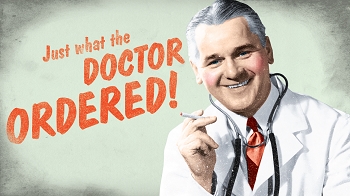With their detailed knowledge of the risks of smoking, it’s not surprising that most doctors and other medical professionals usually don’t smoke. But some do, despite many having first-hand experience of its dangers. The question is: why?
 Medical professionals see the devastating effects of smoking first-hand, so many people are surprised to learn that some doctors and nurses still smoke. Doctors in particular have extensive knowledge of the ways in which smoking harms your health, but nurses have a lot of knowledge in the area too. For this reason, you wouldn’t expect many of them to continue with the habit themselves, and for the most part, you’d be right. However, some doctors and nurses continue to smoke. Understanding why is not only vital to helping more of them quit, it also gives insight into the continuing issue of smoking in our society despite widespread understanding of the risks.
Medical professionals see the devastating effects of smoking first-hand, so many people are surprised to learn that some doctors and nurses still smoke. Doctors in particular have extensive knowledge of the ways in which smoking harms your health, but nurses have a lot of knowledge in the area too. For this reason, you wouldn’t expect many of them to continue with the habit themselves, and for the most part, you’d be right. However, some doctors and nurses continue to smoke. Understanding why is not only vital to helping more of them quit, it also gives insight into the continuing issue of smoking in our society despite widespread understanding of the risks.
What Percentage of Doctors Smoke?
The simplest question you may have is “what percentage of doctors smoke?” Physicians have the lowest smoking rate out of all medical professionals, according to research. A study published in the Journal of the American Medical Association (JAMA) found that in 2010 to 2011, 1.95% of doctors were current smokers. This is much lower than the corresponding rate in the general population, which was 16.08% at the time. It’s also lower than the overall rate among medical professionals, at 8.34%.
As a percentage, the figure may seem very low, but it represents almost 1 in 50 doctors in the US. This is still shockingly high for professionals with a detailed understanding of the health risks of smoking. Other estimates have put the figure at around 1%, but this is still a surprisingly high proportion.
Smoking Among Nurses
The same JAMA study looked at smoking among other medical and healthcare professionals, including smoking among nurses. Among registered nurses, the smoking rate was 7.09% in 2010 to 2011. Earlier studies put the estimate at around 8.4%. For licensed practical nurses, the smoking rate was much higher, at almost 1 in 4 in 2010 to 2011.
The evidence shows that nurses are much more likely to smoke than doctors, and the smoking rate among licensed practical nurses is actually substantially higher than in the general population.
Why Do Medical Professionals Smoke?
After learning about smoking among doctors and nurses, you might be wondering why people who understand all of the risks of smoking continue to do it. This question has been investigated by research with regards to nurses. The evidence shows that nurses often start smoking before undertaking their training, and do so for many of the same reasons other young women (and people in general) start smoking. Being a nurse (or a doctor) can also be very stressful, so this likely has a role to play too.
The reason they don’t quit is also the same as for the general population. Quitting smoking is very challenging, and combined with a stressful work environment this explains why their medical education doesn’t lead all doctors and nurses to quit. However, smoking rates in doctors and registered nurses are declining.
Is it Ethical for Doctors and Nurses to Smoke?
There are ethical and professional issues relating to smoking by doctors and nurses. For ethical issues, the most obvious is that it could be seen as hypocritical. Doctors and nurses smoking is seen by some people as undermining their credibility when telling patients about the dangers of smoking and why they should quit. It could also be seen as “sending the wrong message” to patients who see doctors or nurses smoking. In short, many argue that doctors and nurses should be better role models for their patients.
However, there is some disagreement on this issue. If one of the 1 to 2% of doctors who smoke does so in his or her own time and out of sight of patients, does it really undermine their ability to do their job? As long as they give sound medical advice on the dangers of smoking, does it really matter what they do in their personal life?
Regardless of your view on the ethical issues, from a practical perspective, many healthcare providers either ban smoking on their grounds or even refuse to hire smokers. This makes quitting a priority for many doctors and nurses who smoke.
Helping Doctors and Nurses Quit Smoking
Whether for ethical reasons, professional reasons or for the multitude of health benefits that come from quitting smoking, doctors and nurses should be encouraged to quit smoking. Having first-hand experience with the quitting process also enables them to give more insight and advice to patients attempting to quit smoking.
Doctors and nurses can quit smoking using the same methods as everybody else, but they have the benefit of not only understanding the importance of quitting, but also having better access to medications to help with quitting smoking. Although the smoking rate in doctors and nurses is lower than in the general population, encouraging those who do smoke to quit and including quitting aids in medical industry insurance plans could bring the smoking rate down even further.
The more doctors and nurses quit, the healthier medical professionals will be, and the more they’ll be encouraged to help their patients do the same.

